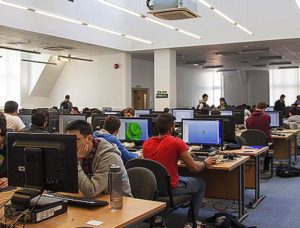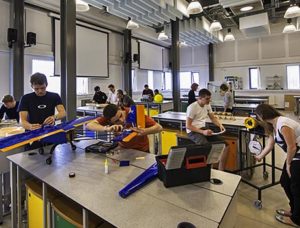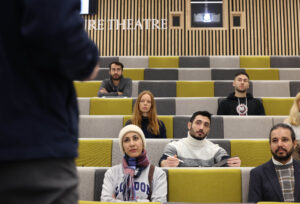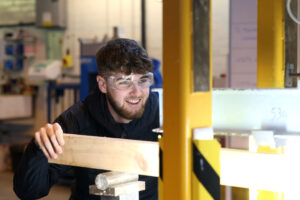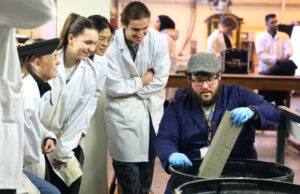Your experience
Expand your horizons and develop a truly global outlook
At our Liverpool campus you’ll have access to state-of-the-art facilities and resources, a Gold-rated teaching experience, and language and careers support to help you make the most of your time with us. You’ll also live and study in a city that’s known for being diverse, welcoming and inclusive – home to the oldest Chinese community in Europe.
This degree is jointly delivered by the School of Engineering and the School of Architecture. The School of Engineering has world-class, modern, engineering teaching and learning facilities. Within the School there are traditional lecture theatres as well as teaching laboratories, PC teaching centres, smaller study rooms and one of the University’s largest PC teaching/study rooms with over 160 high-specification workstations with specialist engineering software installed.
The Liverpool School of Architecture benefits from comfortable, well-lit studio, work and seminar/review spaces. We also have IT teaching laboratories and workshops, meeting spaces and excellent office accommodation.
Supporting your learning
From arrival to alumni, we’re with you all the way:
An exicting place for postgraduate study
- Teaching includes visits to construction sites and companies implementing sustainability agendas
- State-of-the-art facilities will be used for research-led teaching or final year projects
- A dedicated postgraduate office and personal tutors assist our postgraduate students during their MSc programme and facilitate the journey to your graduation.


